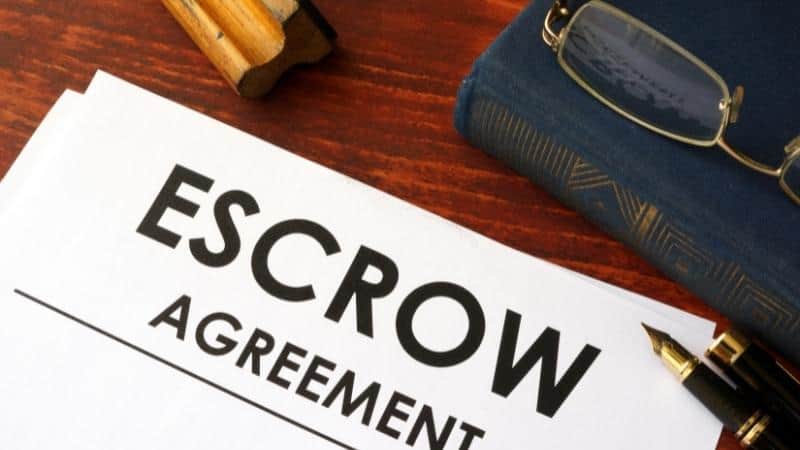When your personal injury lawsuit is eventually settled, the first thought that comes to mind is almost always when you will receive your escrow check. You’re ready to be paid after months or years of diligence and endurance – and you’re ready instantly. The anticipation is natural, given all of the expenditures that have undoubtedly piled up and the commitments you’ve made.
Sadly, you and your lawyer will have to leap over a few additional hurdles before the accused sends the cheque to your lawyer. Before the company can release the balance to you, your attorney has obligation to respond.
How long it takes to receive your escrow payment varies from case to case and is determined by a number of factors.
Releasing of forms
A release form, which states that you will not pursue further legal suit against the defendant for the occurrence in question, is one of the first documents you’ll have to sign after accepting a settlement. Simply put, unless the defendant (or their insurance agency) signs the release form, which releases them from any future financial obligation, the defendant (or their insurance company) will not issue a check for any damages.
If you have many lawsuits pending against the same offender, you will not be required to give up any of them by accepting the terms of the form. The release form should specify the claims you agree to release the accused from, and it may expressly exclude other current cases in specific instances. Before you sign the release form, your lawyer will go through it with you to make absolutely sure the conditions are reliable and objective, and that they won’t jeopardize any of your other outstanding cases.
When there are numerous parties involved, you may need various release forms. Any parties with a vested financial interest in the lawsuit or settlement may need one, including the accused, their insurance agency, and any other parties with a financial interest in the case or settlement. Again, your lawyer will go through everything with you and make absolutely sure that everything is completed and submitted on due time so that your check doesn’t get held up.
In rare circumstances, you might hit a roadblock if your lawyer or opposing counsel disagrees with a phrase in the release form. It’s possible that the release form will need to be rewritten to correct the error or to include the regulations demanded by both parties. Although such occurrences are uncommon, they might lead to a delay in the settlement check.
Delays in internal processing with the suspect
Many jurisdictions have rules dictating how long it would take for a defendant (or their insurance provider) to receive settlement money once the release form is submitted. Sadly, companies can take advantage of a number of loopholes to delay the processing of your check.
Once the organization gets your release form, the most frequent impediment of delay you will face after a settlement is an overstated “processing time.” The law is applicable when the release form is legally accepted by the organization, regardless of whether your state requires them to send a check within 10 days or 30 days. As a result, scanning and officially confirming your form might take several days to a week in their processing section. Your lawyer should get your settlement money pretty soon once this is taken care of.
Awaiting the Clearance of the Check
Until the cheque clears, the lawyer may put it in an escrow account. This might add roughly to 5–7 days, depending on the amount of the check. The law firm will collect its part of the settlement payment as quickly as the cheque clears to bear the expense of legal services. If the company clears any advances to cover the costs of your existing case (for example, paying witness testimony, legal bills, and so on), they’ll be refunded as well. There should be no misunderstandings because you must have a thorough understanding of these expenses ahead of time.
Settling current liens and bills
Your lawyer may have recommended you not to pay associated hospital expenses at the time of negotiations, regarding the situation. You must clear them as quickly as the case is resolved, and your lawyer will make use of the settlement funds to pay any existing liens as quickly as the check comes.
Settling liens is usually a fairly quick process — unless the government is involved. If you have liens from Medicare, Medicaid, or other government-funded aid programs, it could take months to resolve these outstanding balances. Unfortunately, your lawyer will be unable to release your cheque until these have been paid in full.
Unfortunately, your lawyer will be unable to release your cheque until these have been paid in full. Your lawyer will have to pay overdue costs relating to your case in addition to resolving debts. Expert witness fees, private inspections, medical testing, and other expenses are instances.
The majority of them are predetermined costs, although your lawyer may need to discuss an ultimate payment amount in some cases. You don’t want to hurry a discussion and end up with a higher cost, so remain patient while negotiations are underway.
The ultimate distribution
Your lawyer is free to send your cheque after completing his or her duties to pay existing liens and case-related costs. You may get the cash through cheque or wire transfer, regarding the situation.
You have every right to rejoice and expend your settlement money any way you like, but keep in mind that you still have to cover any costs that your lawyer didn’t pay. Maintain an inventory of all the connected expenses and absolutely ensure that they are all covered before you start spending your settlement cheque (Of course, only to the extent that your settlement check can pay these expenses). Numerous settlement applicants make the same error of spending all their money before settling off their debts, resulting in serious financial difficulties.
What about structured settlement payments?
An accused may pay using a structured settlement in exceptional cases. A structured settlement differs from a conventional settlement in that the defendant ends up paying the settlement amounts throughout time rather than in total. These sorts of settlements are most common when a minor is involved or when a severe injury necessitates considerable continuous medical treatment.
In a structured settlement, the perpetrator or insurance provider generally creates an annuity for the sufferer that pays out on a regular basis. Make sure to question your lawyer about your settlement payments if you and the accused agree to a structured settlement. Without properly examining the conditions, agreeing to a structured settlement may result in additional delays, uncertainties, and financial issues.

What can I do to expedite the arrival of my settlement check?
Although the majority of the procedures on this list are beyond your control, there are several actions you can do to expedite the process. Consider preparing and signing a release form ahead of schedule if you think a settlement is near. This way, it will be available instantly once you sign an agreement. While the release form is being processed, cooperate with your lawyer to make a list of your pending liens and expenses, record existing bank account assets, and gather recent bank records so your lawyer can cover them as quickly as the check comes.
After all else, answer your lawyer’s demands promptly, keeping in mind that waiting until the following day to answer their email or mobile calls may lead your settlement check to be delayed.
If you require the money of the settlement check while it is still ongoing, speak with your lawyer about collecting a part of the settlement payment in advance. Although not all law firms are able to pay the advance of a portion of a settlement check, and lawyers are under no responsibility to do so, it’s a thoughtful gesture that really can assist you to get by while the accused executes the release form or your lawyer deals with Medicare to settle remaining healthcare bills.
Is it necessary to receive a settlement advance?
If you really need money right away, you may take out a loan against your outstanding settlement. Consider contacting a Funding agency for lawsuit financing.
A litigation loan, also known as pre-settlement financing, is a financial advance that a defendant receives in return for a share of their paycheck. A lawsuit loan, unlike a conventional loan, does not require a credit check or evidence of earnings. Rather, we evaluate candidates based on the quality of their arguments. Above all, our loans are risk-free, which means you don’t have to pay us back until you win your case.
Give one of our professionals a call now or submit an application for a free consultation if you really need to pay bills or other costs of living and can’t wait for your settlement payment.
Depending on your case, your attorney may have advised you to not pay associated medical bills during negotiations. You have an obligation to pay these as soon as the case settles, and your attorney will use settlement proceeds to settle any outstanding liens as soon as the check clears.
